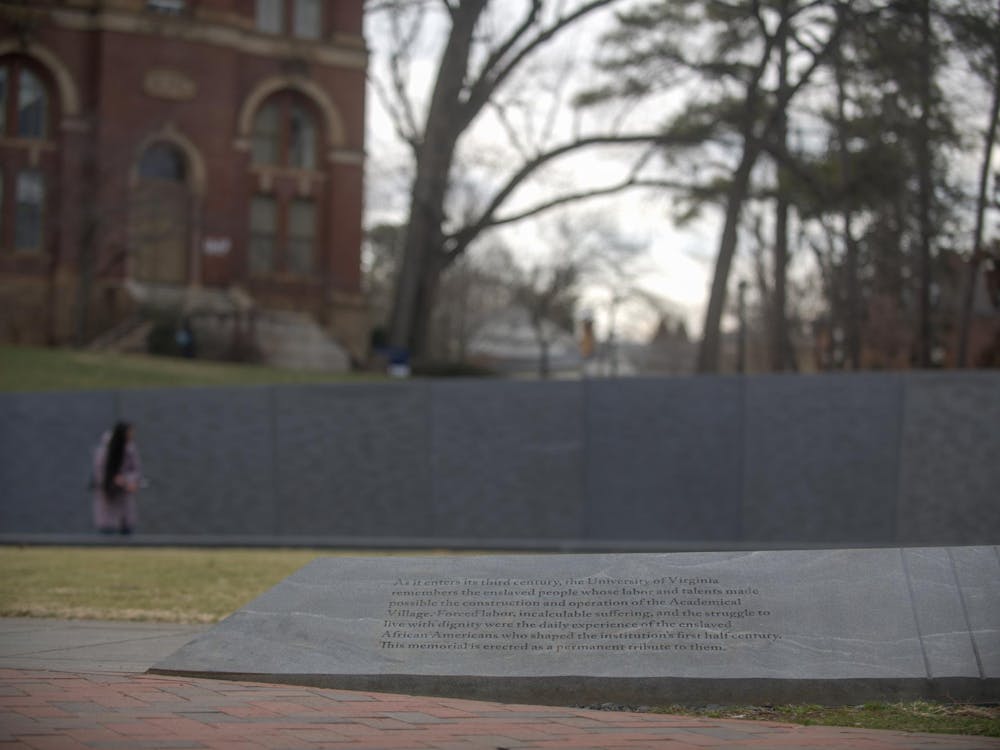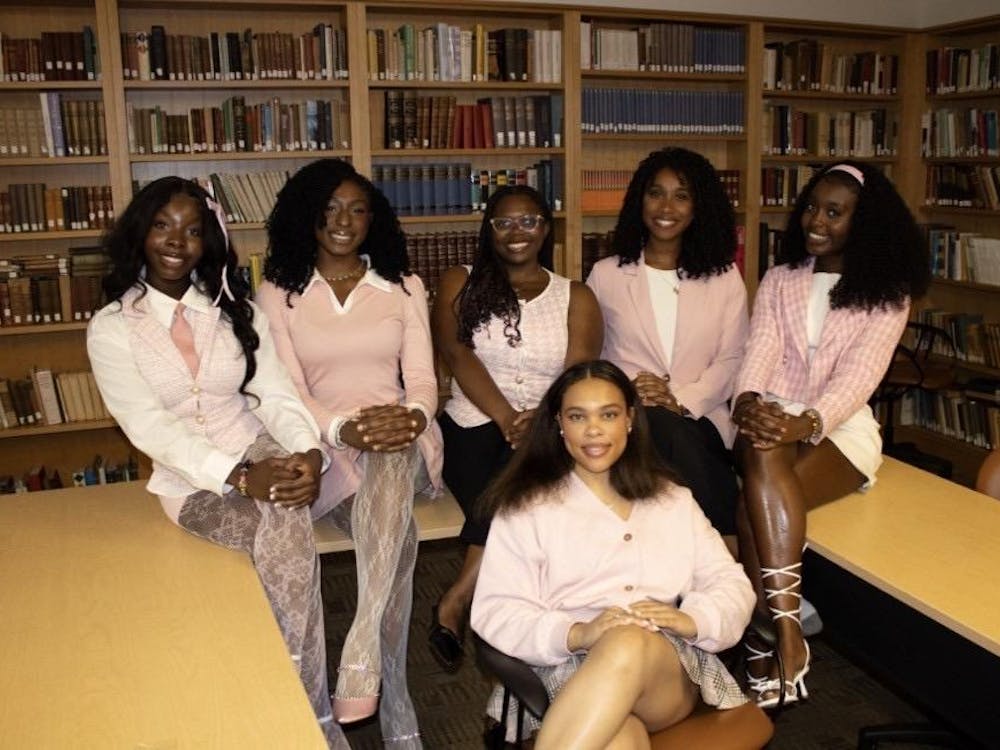University students can find Stephanie Goodell teaching leadership skills in various capacities around Grounds, but over the summer, she was on the other side of the Atlantic, teaching leadership to a very different type of student. Goodell, who teaches Paradigms and Strategies of Leadership and serves as the University's assistant director of student involvement, spent several months in India, assisting Tibetan women.
The trip this summer was not her first visit to India. When she turned 30, she went to India with a group of friends and said she was deeply touched when she visited the Tibetan Children's Village.
"I just fell in love with the kids," she said. "I just noticed something different about the Tibetan people."
Goodell said the something different that she noticed was joy and happiness in the face of difficult circumstances.
"I said: 'How can that be?'" she said. "If I'd gone through that, I'd probably be really bitter, but they've got something ... and I realized it was their faith."
The following summer at a leadership conference at the University, participants discussed where they would travel if they could go anywhere, and Goodell said she would go back to the Tibetan Children's Village to volunteer. Afterward, a woman at the conference put Goodell in touch with B. Tsering, a Ph.D. student in the Education School whose husband was the volunteer coordinator for TCV.
"The writing couldn't be clearer on the wall," Goodell said.
About two and a half years later, Goodell got approval to take a leave of absence from the University. She asked Tsering to forward her resume to her husband, but since her resume was filled with women's leadership experience, Tsering asked her to consider working for the Tibetan Women's Association instead.
"It was a big mistake to send my resume because my resume screams leadership, and one specific program I work with is Women's Leadership Development Program," Goodell jokingly said.
Tsering was serving as president of the Tibetan Women's Association at the time and developing programs to promote Tibetan women's leadership. Goodell readily accepted the offer to assist Tsering in planning leadership workshops and editing a magazine.
After Goodell arrived in India, she spent two weeks reading about Tibetan culture.
"Even though I knew ultimately I would be helping them with leadership, how much of leadership is universal, and how much of it is cultural?" she said. "I needed to understand, and so I spent a lot of time doing that."
In addition to discussing leadership-related topics, Goodell said the women were also interested in English grammar and cultural issues. Others wanted to know about applying to colleges because they hoped to come to the United States on Fulbright scholarships as Tsering had done.
The interaction between the women was fostered by taking tea breaks and meals together and also by the unique setting of the all-female group. Some of the women were born in Tibet while others were younger, college educated women who were born in exile.
"It was such a collaborative workplace," Goodell said, adding that the level of respect demonstrated by the members for each other exceeded that in most American workplaces.
While volunteering, she also learned from her living conditions.
"A lot of [the experience] was just being able to cope in an environment without all the luxuries in life, like I didn't dry my hair once," Goodell said. "I did wear make-up every day -- I can never go anywhere without lipstick -- but from the leech on my leg and the monkey on my porch to sleeping in a hut to getting drenched by a monsoon, I realized how flexible you can be. You don't really need all that other stuff, and life really can be a lot more simple, and we, I think, purposely complicate it in the States, especially with material possessions."
Goodell shared about three weeks of this experience with fourth-year College student Lauren Russo, who visited India on a Summer Research Fellowship. Russo said she stayed with Goodell while studying "Stitches of Tibet," a handicraft initiative under the Tibetan Women's Association.
Goodell suggested that Russo study the initiative, which teaches Tibetan women traditional tailoring and crafts in addition to useful English and mathematics skills.
"It continues the traditional Tibetan tailoring style and makes sure traditional Tibetan culture doesn't go by the wayside when they are in exile," Russo said, adding that it was somewhat ironic that the traditional skill fostered Tibetan women's independence, a nontraditional development.
Russo said she was grateful to have been in India with Goodell, who introduced her to friends and was a good traveling companion. Goodell also said their time together has created a special bond. The two will share their experiences Nov. 4 in the Kaleidoscope.
"Unless you've been there, it's just so hard to understand I think how really different it is," Goodell said.
In addition to volunteering, Goodell participated in Vipassana meditation, a type of meditation which involves two hours and 10 minutes of meditation each day in addition to an annual retreat. According to the Vipassana Web site, it is one of India's oldest forms of meditation and has been used for over 2,500 years. During the retreat, Goodell accepted vows of silence and stayed in a small hut which she shared with an Indian woman for 10 days. The silence, which includes singing and humming, was not very challenging for Goodell -- except in one instance.
"I only had one outburst," she said. "I heard all this ruckus outside my window when I was trying to take a nap, so I walk out and I'm watching all the monkeys play in the grass, and I look over and this big monkey comes up and he grabs the back of this Israeli woman. I just gasped [and said], 'He grabbed her!' and somebody went 'shhh!'"
During the retreat, Goodell woke at 4:30 a.m. and spent 12.5 of the 17-hour day meditating. Some of the meditations require participants to sit still for an hour at a time.
"It was by far the most difficult thing I've ever done in my life," Goodell said.
She said the purpose of the exercise is to overcome the pain of sitting in one position for a prolonged period and then translating that ability into overcoming emotions.
"So you can do that with anger, you can do that with pain, you can do that with love because even love creates greed or desire for things," she said.
Goodell said her summer experience was about convergence.
"It was like all these different pieces of a puzzle fitting in together," she said. "In my life here, I've got leadership programs that I run, and I've got one specific program for women that I work with and I've got community service programs that I work with, but there really isn't one thing that integrates all of this together, and this experience did."
One of her most rewarding experiences involved public speaking in the center of town, at "chaos corner," an activity designed to help many of the Tibetan women overcome their fears of public speaking.
"Not many things make my heart beat really fast and make my palms sweat," Goodell said. "I wanted to say something about what I learned, and what I learned was if there is inequality in Tibetan culture with men and women, then even when Tibet is free, there's still going to be inequality. It still won't be a free Tibet because there's inequality with men and women. It wasn't that I was afraid of getting up in front of people because I do that all the time, but what I was afraid of was: Who am I? Who is this white woman from the United States getting up there and telling us anything about our culture? I didn't feel like I was an authority on it, so did I have any right to state my opinion because I was still such an outsider. I was really nervous, but that was definitely one of the peaks of the experience -- doing something that caused me anxiety."
About three weeks after she returned to the United States, Goodell briefly returned to India for the conference she had helped to plan.
"It just so happened by nothing short of a few miracles falling into place that I was able to go back and that was just amazing," she said.
During this later visit, she and about 150 other women had a special audience with the Dalai Lama. She and an Israeli friend were the only non-Tibetan women present, so they were noticed by the Dalai Lama.
"He goes: 'What's up with the yellow heads?'" she said. "He said it in Tibetan, but I knew exactly what he was saying because he was looking at me, and all eyes in the room turn on me. I've never been so happy being stared at in my life."
The Dalai Lama then gave each member of the group a special package.
"It's kind of cool to get a gift from His Holiness," Goodell said.
She still wears the red string He blessed around her wrist, and she also wears a necklace with a picture of the Dalai Lama on one side and Green Tara -- the only female deity -- on the other in addition to a necklace with a thunderbolt from a Tibetan friend.
Goodell said she believes the attention many people give to Tibet is because they recognize the value of Tibetan culture.
"It's not about religion," she said. "It's about a more peaceful earth and being compassionate and kind with other people and with yourself. ... And this is what the Dalai Lama and all the people believe -- that the whole world has something to learn from Buddhism and from the Tibetan people, and so it's something very precious."






